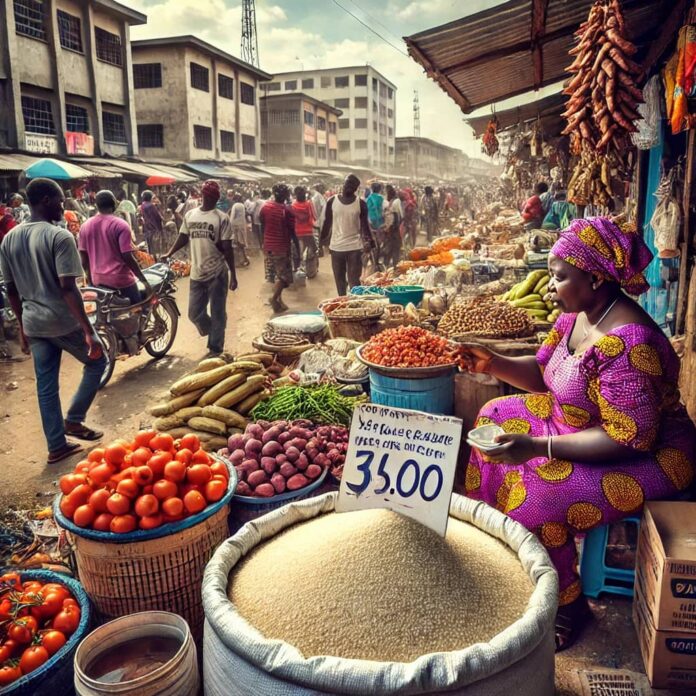By: Comrade Stanley Anamali
Nigeria’s economy is at a crossroads. Recent reports from the Central Bank of Nigeria (CBN) indicate that the country’s net foreign exchange reserves have reached a three-year high of $23.11 billion, while GDP is projected to grow by 4.17% in 2025. Officials say inflation will ease, and economic conditions will improve.
But for everyday Nigerians, these figures don’t quite match reality. Prices of essential goods remain high, businesses struggle with rising costs, and the naira continues to fluctuate. The question is: Are we truly seeing economic progress, or are these just numbers on paper?
The Data vs. Daily Life
On the surface, increasing forex reserves should strengthen the naira and stabilize the economy. However, the local currency still trades at over ₦1,300 per dollar, and inflation remains a major concern.
Market surveys show that a 50kg bag of rice, which sold for ₦40,000 last year, now costs nearly ₦70,000. A tuber of yam that once went for ₦800 is now ₦1,500 to ₦2,000 in many states. Transport fares have doubled, and businesses are raising prices just to stay afloat.
“They say the economy is improving, but how? I still buy a bag of rice at almost ₦70,000. Transport fares have doubled. People are not smiling,” says Aisha Lawal, a Lagos trader.
Small Businesses on the Brink
Nigeria’s small and medium-sized enterprises (SMEs), which make up over 80% of the economy, are struggling. Many rely on imported materials, which have become more expensive due to currency instability. Power supply is unreliable, forcing businesses to depend on expensive fuel or alternative energy sources.
A recent survey by the Lagos Chamber of Commerce found that 40% of SMEs are at risk of shutting down due to high operating costs.
“We are expected to innovate and grow, but how? Power is unreliable, the internet is expensive, and government policies are unpredictable,” laments Samuel Okoro, a tech entrepreneur.
Is There a Way Forward?
Despite the challenges, economic experts suggest that Nigeria can still turn the corner—but only with the right policies. Key areas to focus on include:
- Forex Stability – A more predictable exchange rate will help businesses and reduce inflation.
- Fuel Subsidy Clarity – Nigerians need transparency on how subsidy removal will impact their daily lives.
- Support for Local Production – Strengthening agriculture and manufacturing can reduce dependence on imports.
- Targeted Relief Programs – Economic growth must reflect lower food prices, better wages, and improved living standards.
Conclusion
Nigeria’s economy may be improving on paper, but for millions of citizens, hardship remains a daily reality. Until economic gains translate into affordable goods, stable currency value, and improved business conditions, many Nigerians will continue to question whether this “growth” is truly for them.
Will these positive projections ever reach the streets, or will they remain just numbers in government reports?



